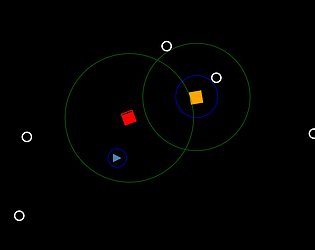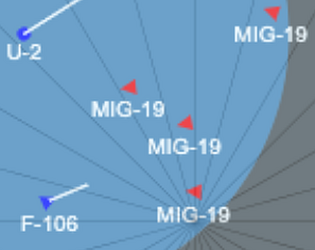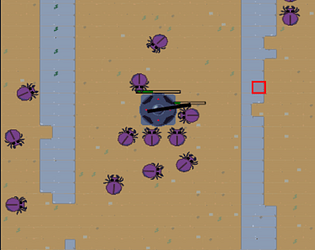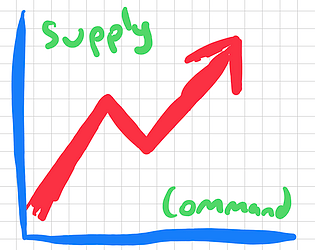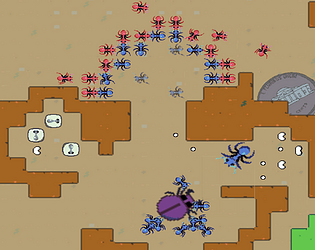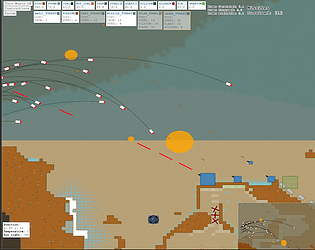Thanks for playing!
You're right about this not being Marxism, I just wanted a provocative tagline!
Also in regards to your point about a bread-only economy being pointless -- that is true. For the society to make sense it should start with several commodities. But I didn't want to overwhelm new players with too many parameters to balance and I just aesthetically like clicker/management games that start you dead simple and then build up from there.
So alas, the integrity of the analogy to real life has to take a backseat to the game design.
I haven't revisited this game in a while, but reading through all the comments again I am reminded that I was working on a sequel to this game at one point but got bogged down. The goal was to have an economy similar to the one in this game -- where goods are made and workers get paid out, but then to have several different factions (some combination of: landowners, business owners, intelligentsia, laborers, farmers, middle class, army, secret police, religious elite) that each has its own population and collective wealth, as well as specific policy goals about how they want the economy to work (like tax rates, minimum wages, rent control, subsidies, etc.). And then each faction has an approval rating for you as the leader which would depend on the material conditions of the population of that faction as well as whether or not you are passing/rejecting the policies they support/oppose. And if too many factions hit 0 approval then you lose.
The problem I've run into is that I can't tune the simulation in such a way that there is any strategy at all -- either there's too much slack in the system and you can do whatever you want and everyone's happy, or there's not enough money to go around and you basically must do whatever the faction with the lowest approval rating wants you to do or else it's your head. I also have it set up where you don't get to propose your own policies e.g. you can't just mandate that minimum wage is $X (because this would be a totally different UI and type of game than balancing the desires of competing factions, and imo too easy), but rather at certain intervals policies are semi-randomly generated and proposed to you and you can either approve or deny them. This can feel fun to weigh the policies while you play, but too often I'll get into a situation where e.g. the working class will eventually be driven to bankruptcy/revolt by the high costs of food + rent + goods, but the farmers, landowners, and business owners strongly oppose any policies that would alleviate this burden and may even go insolvent themselves if e.g. minimum wage is raised.
These problems do amuse me though because it feels like maybe our own politicians are in similar binds.
I've been thinking about more ways to introduce ideology into the game instead of just pure numerical strategy -- could the goals be shifted to let you play it out as a worker's champion, or an educated aristocrat, or a technocratic fascist, and express that ideology through the decisions you make in the simulation? Do you have any thoughts about how to better represent ideology in these kinds of economic simulations?
The code is here if anyone is curious: https://github.com/BenEskilstark/ClassWar/blob/main/js/config.js


